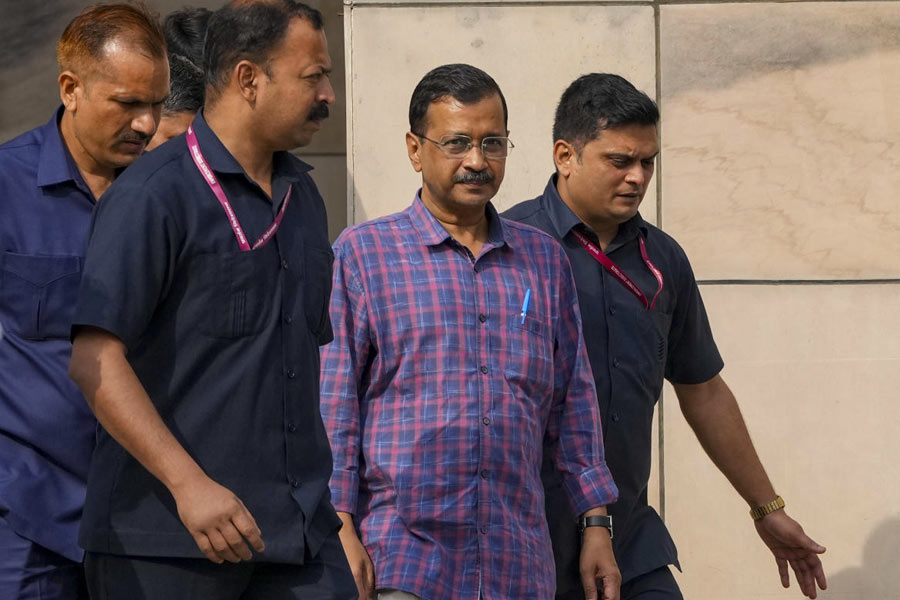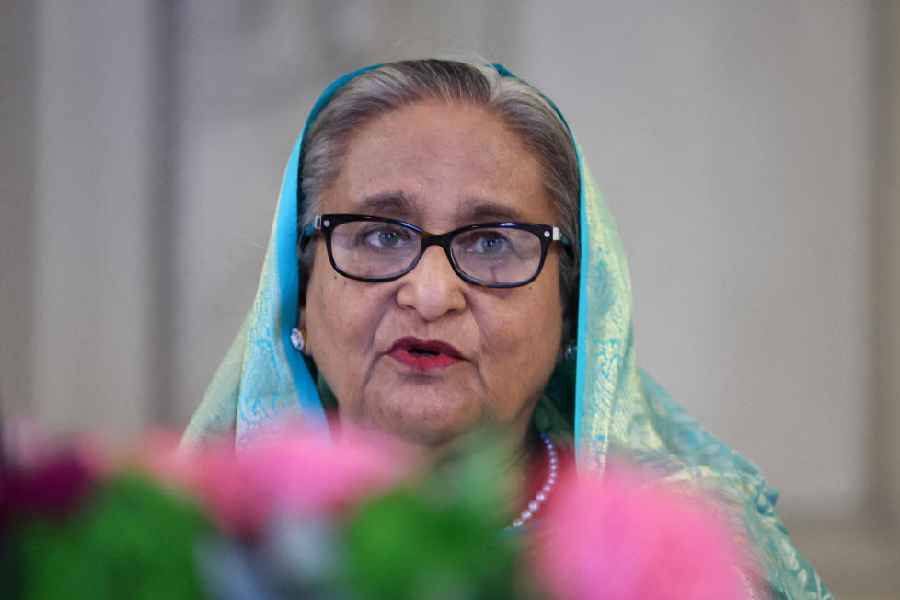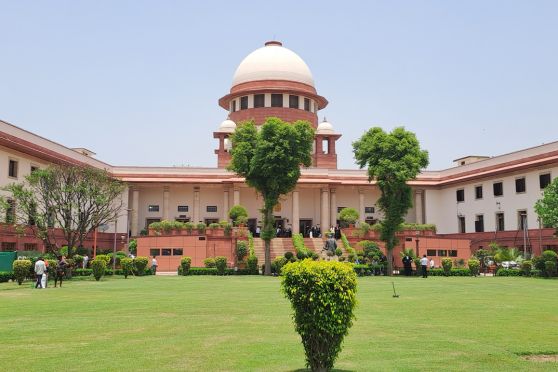The Enforcement Directorate told the Supreme Court that Delhi Chief Minister Arvind Kejriwal led the investigating officer through his conduct "to form the satisfaction" that he is guilty of money laundering.
In its reply affidavit to Kejriwal's petition challenging his arrest by the Enforcement Directorate (ED), the agency said the AAP leader was avoiding interrogation by not being present before the investigating officer despite nine summonses.
Reacting to the affidavit, AAP alleged the ED has become "a machine for telling lies".
The ED said in its affidavit, "The accused, by his conduct, has himself contributed and aided the investigating officer regarding the existence of the necessity to arrest, apart from the material in possession of the IO, to form the satisfaction that the petitioner is guilty of the offence of money laundering." Terming Kejriwal's petition challenging his arrest as "devoid of merit" and liable to be dismissed, the ED said the material that formed the basis for satisfaction of the investigating officer for arresting him had been perused by different courts.
"Therefore, on this limited ground, the petition is devoid of merit and liable to be dismissed in limine second contention in this regard is that the material in possession of the investigating agency which formed the basis for the investigating agency to arrive at the satisfaction requisite for arresting the accused person, having been seen and perused by three different judicial authorities (courts) at three different levels has found judicial imprimatur and the consequential denial to grant the relief asked for by the petitioner in connection with the same," it said.
The agency said Kejriwal's petition is not a plea seeking to be released on bail after completion of the investigation. Rather, it is an appeal against the rejection of a writ petition challenging the arrest during the pendency of the investigation when the prosecution complaint is yet to be filed.
"In this connection, it is submitted that the petitioner has been arrested bona fide and not for any mala fide or extraneous reasons. It is categorically denied that the arrest was mala fide. Regarding the contention pertaining to mala fide, it is submitted that not only the contentions of the petitioner is baseless and ill-founded but it is vague general and not specific," it said.
Arrest is part of the investigation, the ED said, adding that the investigation of an offence including arrest is a field exclusively reserved for the investigating agency.
The ED arrested Kejriwal on March 21, hours after Delhi High Court refused to grant him protection from coercive action by the federal anti-money laundering agency. He is currently lodged in Tihar jail under judicial custody.
On April 15, the top court sought a response from the ED by April 24 on his plea challenging his arrest in a money-laundering case stemming from the alleged excise policy scam.
The probe agency said in its affidavit, "Even on the date of the search during his interrogation while recording his statement under Section 17 of the PMLA (Prevention of Money Laundering Act), he was avoiding answering questions by being evasive and totally non-co-operative even with respect to simple non-incriminating questions." It said one of the reasons, therefore, which necessitated the arrest was this blatant disregard for the law.
"In such a case, the investigating officer was justified in forming an opinion that custodial interrogation would lead to 'a qualitatively more elicitation oriented' questioning of the accused," it said.
The probe agency further said, "The necessity of arrest, therefore, arose not only because of the aforesaid situation emanating from the conduct of the accused but also from the fact that there was even otherwise sufficient material in the possession of the IO to constitute the reason to believe (such reason to believe having been duly recorded in the record of the case) that the accused has been guilty of the offence punishable under the Prevention of Money Laundering Act, 2002 (PMLA)." It added that the investigating officer in the case not only had the power to arrest the accused but it also became necessary to arrest him on account of his total non-co-operative attitude.
"Such an attitude also gave rise to a situation that confrontation with material in possession with the IO was not possible because the accused was totally non-co-operative and disobeyed a large number of summonses," it said.
The agency said it is not shy of disclosing the material on the basis of which the belief to arrest him was arrived at.
Reacting to the ED's affidavit, AAP said, "The ED has become nothing but a machine for telling lies. Each time the ED comes up with new manufactured lies at the whims of their masters, the BJP." The high court on April 9 upheld Kejriwal's arrest, saying there was no illegality about it and that the ED was left with "little option" after he skipped repeated summonses and refused to join the investigation.
The matter pertains to alleged corruption and money laundering in the formulation and execution of the Delhi government's now-scrapped excise policy for 2021-22.












